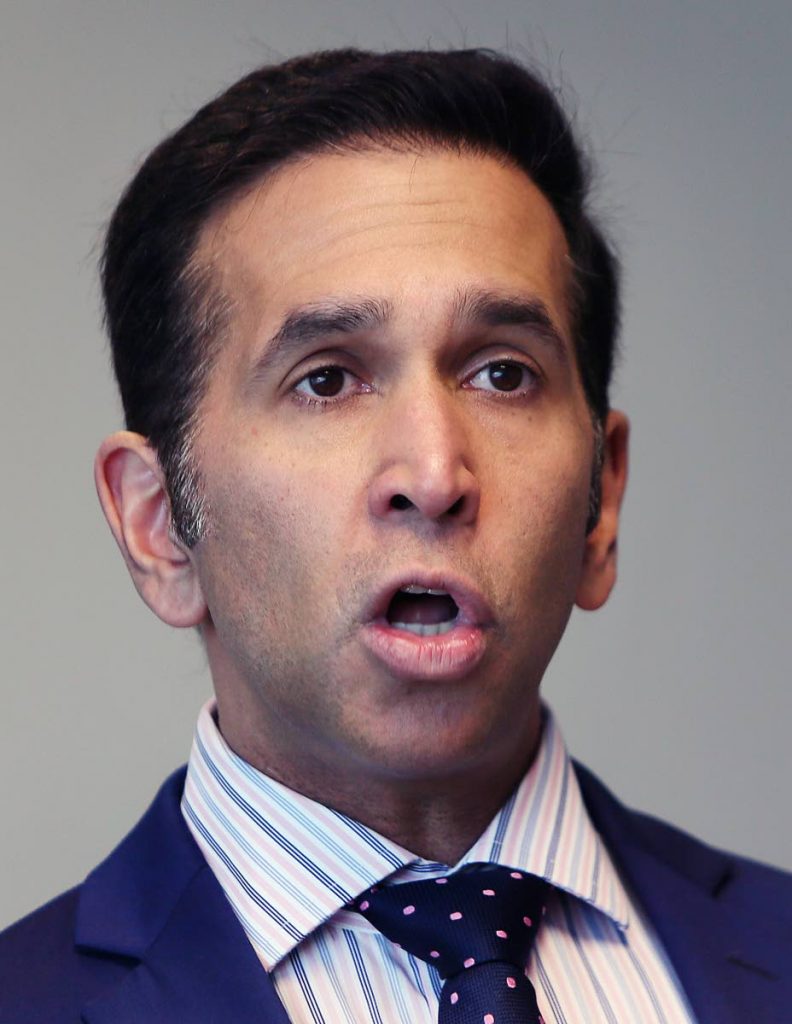Attorney General Al-Rawi: Important step to clarify law

Attorney General Faris Al-Rawi has welcomed a High Court judgement by Justice Carol Gobin in his interpretation claim concerning unfinished cases left by former chief magistrate Marcia Ayers-Caesar, calling it an important step to clarifying the law.
In her ruling published Thursday, Gobin said the 53 cases left by Ayers-Caesar when she took the position of High Court Judge in 2017 should be restarted.
In a telephone interview yesterday Al-Rawi said he felt there was a loophole in the Indictable Offences (Preliminary Enquiry) Act Chapter 12.01 because there was a doubt as to how Section 23 Sub clause 8 should operate.
“The circumstances described there were very limited and the DPP had, in the public domain, made certain inquiries as to the position that he should adopt in the circumstance of the magistrate taking judicial appointment and, therefore, not necessarily resigning.”
Al-Rawi said he went to the court and asked for the interpretation which concluded that a magistrate becoming a judge was the same as a voluntary resignation.
“That was a very important point of law. That meant it would free up the DPP to take such action as he considers appropriate under the Preliminary Enquiry legislation or under the constitution if necessary.”
Al-Rawi also spoke on the related legal matter involving murder-accused Akilli Charles.
The preliminary enquiry for Charles' murder case was among those left behind by Ayers-Caesar. Charles, through attorney Anand Ramlogan, SC, had filed a judicial review claim which Gobin decided as part of the interpretation summons claim. Gobin had ordered that Charles was entitled to part of the legal costs from the State.
Yesterday, Al-Rawi said Gobin's order was not uncommon as the State was ordered to pay costs all the time. He said Ramlogan pushed for a judicial review but Gobin stayed him, noting that Al-Rawi took the proper action in requesting an interpretation and Ramlogan should wait for the outcome.
He explained that under the law, there was a loophole in the Magistrates Protection Act where magistrates were not protected from litigation the way that judges were.
“If you sue a judge for instance, if the judge is acting in certain circumstances, the State pays the cost. There is no question of the judge being exposed to cost personally because there is protection for judges.”
Al-Rawi said he recognised the loophole long before this case and drafted and passed a law to protect magistrates in the Senate and it was now before the House of Representatives.
“Although this was not the subject of her judgement, the judge has effectively approved my approach.”
He added that, on Friday night in the House of Representatives, he passed amendments to the Administration of Justice (Preliminary Inquiries) Act No 20 of 2011, the parent law to Section 34. “I went back to that, I amended that law to abolish preliminary enquiry. I took into account all the research and consultation I have done. In that law, in Section 27 of that law, I put in the amendment to take care of what Justice Gobin spoke about in the interpretation summons. Again I am ahead of the curve and it is already on its way to the Senate.”
He admitted that a law could not cater to every circumstance but believed something like this would not happen again because the magistracy was in the process of being computerised rather than relying on a judge or magistrate’s memory or personal records. He said the JEMS software, a case management system was being installed and it would enable authorised people to see every matter filed in the courts, including information on the judges ruling and the state of the cases.


Comments
"Attorney General Al-Rawi: Important step to clarify law"